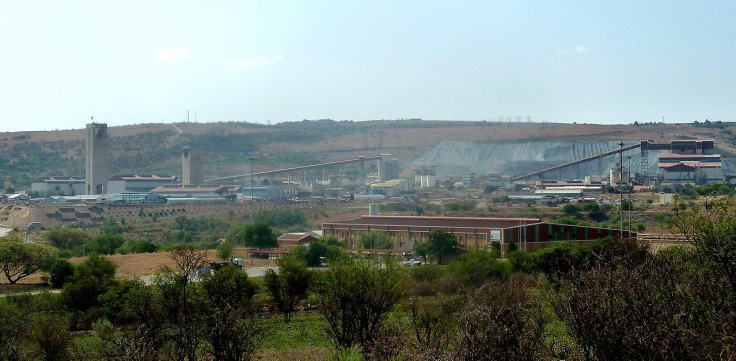AngloGold Departs South African Gold Mining By Selling Last Mine To Harmony

KEY POINTS
- AngloGold traces its origins to the empire built by Ernest Oppenheimer
- Harmony Gold has been buying up assets to boost its reserves
- South Africa's gold mining industry is beset by high costs, safety issues and deep mines
AngloGold Ashanti Ltd. (AU) sold off its last South African mine property to rival Harmony Gold (HMY) on Wednesday.
AngloGold reached a deal to sell the Mponeng mine and its surface assets for $300 million, or less than half of book value.
Under terms of the deal, AngloGold will receive $200 million in cash and a deferred consideration of $100 million linked to the mine’s future production.
The asset disposition positions AngloGold to move its primary share listing to London from Johannesburg.
AngloGold traces its origin to the mining empire formed by legendary entrepreneur and financier Ernest Oppenheimer more than 100 years ago.
“This sale helps deliver on our commitment to sharpen our management focus and capital allocation on the highest return investment options available to us,” said AngloGold chief executive officer Kelvin Dushnisky.
James Bell, an analyst at RBC Capital Markets, said that despite the moderate sales price, the deal provides strategic benefits “both in terms of further delivery on its stated objectives and positioning it for a move in primary listing, potentially to London.”
A sale also makes sense “given these assets would, in our view, struggle to attract capital versus other opportunities in the AngloGold global portfolio,” he added.
Since Dushnisky took over the company in 2018 AngloGold has unloaded assets in Mali and Argentina in order to focus on more profitable operations in Ghana, Australia and the Americas.
Mponeng, located in Carletonville, southeast of Johannesburg, is one of the deepest gold mines in the world – with a depth of 2.5 miles – and would require an investment of at least $1 billion to extend its life beyond eight years. Dushnisky refused to make such a costly investment.
Mponeng generated 265,000 gold ounces of production in 2018.
The transaction will make Harmony the largest gold producer in South Africa, adding about 350,000 ounces of annual production for a total of more than 1.8 million ounces.
Harmony, which is partly owned by billionaire Patrice Motsepe’s African Rainbow Minerals mining conglomerate, has been seeking asset deals to boost its falling reserves. Harmony’s Masimong and Unisel mines are running out of ore.
“The acquisition has the potential to improve our overall recovered grade and increasing our cash flow margins,” said Harmony CEO Peter Steenkamp.
In 2017, Harmony bought AngloGold’s Moab Khotsong mine in South Africa.
The Solidarity trade union welcomed the sale of Mponeng. The union’s general secretary Gideon du Plessis said the takeover will guarantee that thousands of workers will keep their jobs.
Still, du Plessis expressed concern over the increasing number of international companies departing South Africa’s mining sector.
“The government should seriously look at why companies like AngloGold Ashanti and other leading companies are [taking] their mining operations outside South Africa. Clearly there is something chasing them away and I think it’s a big concern, and hopefully to the government as well,” he said.
Should AngloGold find a share listing in London, it would fill a vacancy left by Randgold Resources which was acquired by Barrick Gold (GOLD) last year.
South African gold producers find themselves at aa crossroads – most are incurring losses or barely staying afloat due to high operating costs, safety issues and frequent power outages by Eskom, the debt-ridden state electric company.
The industry is fading in importance to South Africa’s overall economy.
“We don’t think it’s a bad thing to be the last man standing,” Steenkamp said. “We have a different cost structure [compared] to Anglo.”
Rene Hochreiter, an analyst at Noah Capital Markets in Johannesburg, said Harmony will have to find ways to cut costs at Mponeng to make it financially viable.
“Harmony has shown what it can do when it comes to cutting costs when it acquired Moab,” Hochreiter said. “If it can do the same this time, there is substantial upside to the profitability of Mponeng and Harmony itself. If it doesn’t manage to do better than AngloGold did, this deal is not a dripping roast [something which provides income long after it is profitable].”
© Copyright IBTimes 2024. All rights reserved.





















